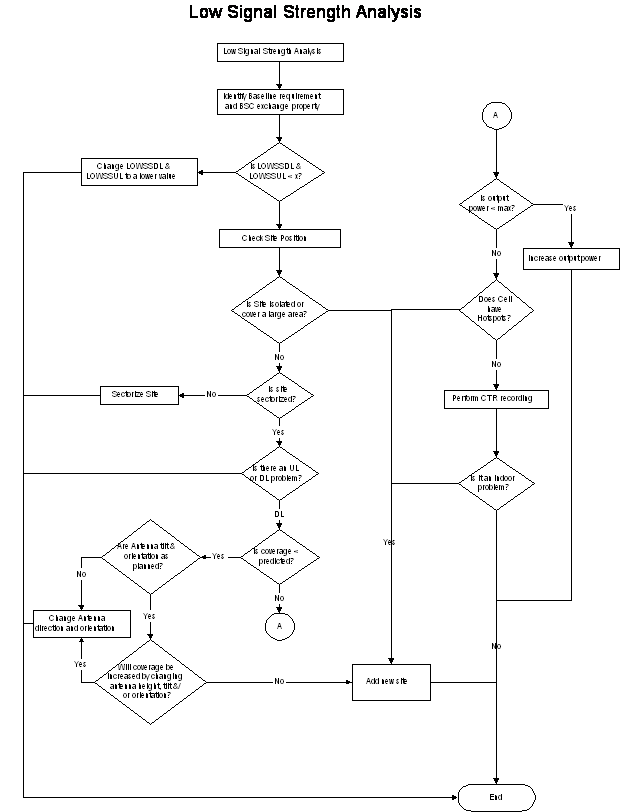Low Signal strength is one of the reason of drop call. It can be indicated by many calls disconnected at low signal strength by subscriber, drop calls due to excessive TA, poor handover performance and poor call setup performance.

Probable Reason |
Poor BSC Exchange Property setting |
High LOWSSDL & LOWSSUL will give more drop reason due to SS and this might not show the actual drop. It is because drop due to SS is more priority than Quality. |
No dominant cell |
Cell might be isolated or standalone. |
Antenna tilt & orientation |
Too much downtilt sometimes might not cover a larger area and the subscriber might lose the SS. |
Output Power |
Low output power might cause smaller border cell. |
The following procedure should be performed for low signal strength analysis:
Identify the baseline requirement of design and BSC exchange property (setting for LOWSSUL/LOWSSDL).
Check the value for LOWSSDL & LOWSSUL. If it is higher than ACCMIN, change the parameter to a reasonable value since the drop reason will be more priority to SS compared to Quality.
Check the site position, antenna direction, position etc. This is to ensure the possible location is open to interference (open water environment) or isolated. Good map is needed for this.
Check if the site is sectorized or Omni. If it is Omni, set the cell into sectorized cell.
Check if the signal strength is uplink or downlink limited. Mostly, It is designed to be downlink limited.
Check the coverage cover expected area from the planet. If it is not, check the antenna tilt and orientation. Change the direction or tilt if it is too much downtilt or pointing to a wrong direction.
Sometime, low output power might cause low SS. Check output power and if it is low, increase the output power.
Check cell whether it has hotspots from drivetests. If found, adding new site is recommend.
In order to check power distribution, run Cell Traffic Recording (CTR) to that particular cell.
Check if the cell has indoor coverage problem. If yes, add micro site instead.